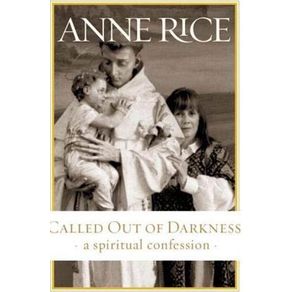Anne Rice has written twenty-eight novels - magnificent tales of other worldly beings, novels set centuries ago and in contemporary times, that explore the realms of good and evil, love and alienation, pageantry and ritual: each a reflection of her own moral journey. Now, in her powerful, haunting memoir - her first work of non-fiction - she writes about her own life as a Catholic. She begins with her New Orleans childhood, in the 1940s and 1950s, where in a vivid world of the senses, of ritual and devotion, her faith was formed. In adolescence, in the shadow of her mother's drinking and slow death, and against a backdrop of Haight-Ashbury and radical Berkeley in the late 1960s, she slowly lost her belief in God but still felt that life had to be conscientious and meaningful.She married her highschool sweetheart and wrote "Interview with the Vampire", a lament for her lost faith. It was the tragic death of her young daughter which turned her into a writer; and the birth of her son, Christopher, that saved her from taking the same road as her mother. Rice describes a Damascene moment in Rio de Janeiro, and how, after thirty-eight years as an atheist, she turned back to Christ, not in blind faith but in a profound transcendental surrender made with open eyes to an all-knowing God, encompassing knowledge, beauty and science. Hers is a faith which has survived even in the face of her husband's subsequent death from cancer, and the divisive nature of contemporary religious debate. This is a spiritual confession that is a celebration; that moves towards a full commitment to Christ, rooted in the words of the Gospel of Matthew: 'Love your enemies'.



